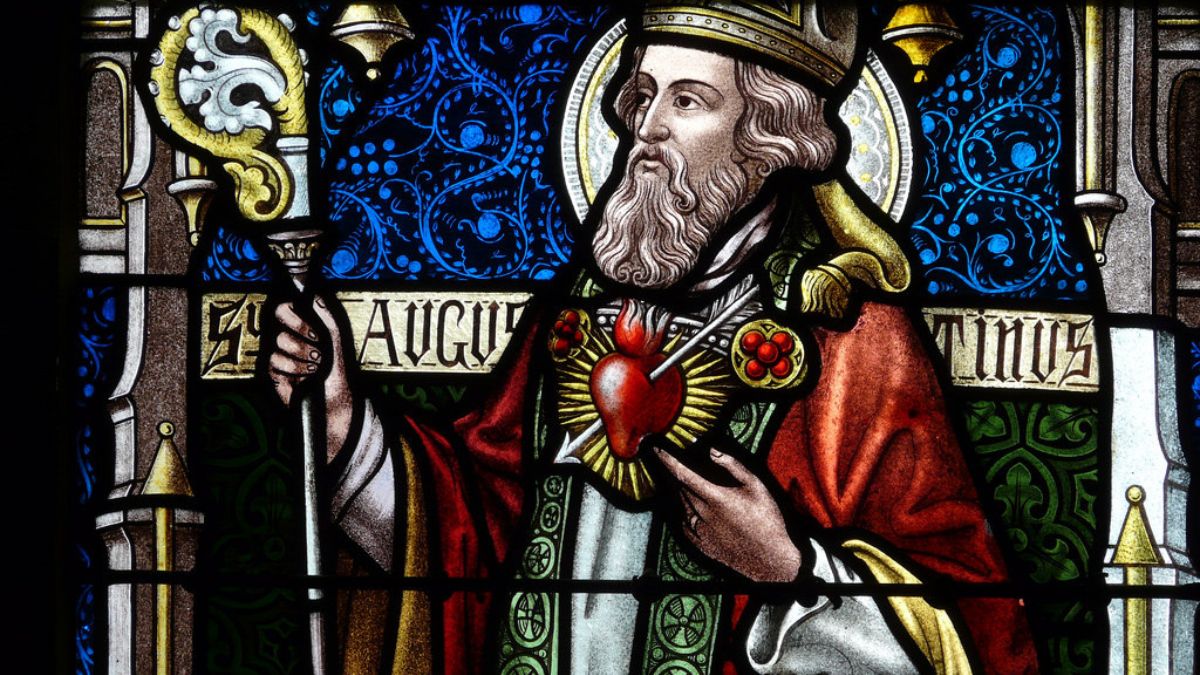

Remembering St. Augustine of Hippo
From disbeliever to the most important Church influencer.
08/28/24
John Stonestreet and Glenn Sunshine

On August 28, 430, St. Augustine of Hippo died. Perhaps the most important father of the early Church, Augustine’s writings shaped Western theology and defined how Western European society understood itself for over a thousand years.
Augustine was born in Thagaste in modern Algeria in 354. His mother Monica was a Christian, but his father Patricius was a pagan who only became a Christian late in life. Although raised a Christian, Augustine found the Bible unsophisticated. To his mother’s dismay, he embraced Manichaeism, believing that this popular, dualistic religion resolved the problem of evil by positing two deities, one good, one evil. However, he eventually became disillusioned with Manichaeism and intrigued by skepticism, also popular during that time.
A highly trained rhetorician, Augustine was hired as a professor of rhetoric in the imperial city of Milan. Monica followed her son to Milan and continued to preach the Gospel to him, but it was when Augustine met Ambrose, the bishop of Milan, that he truly considered Christianity. Like Augustine, Ambrose was an expert orator. Using Neo-Platonic ideas, he showed Augustine a way of reading Scripture that opened new depths that he had not previously seen. This led the way to Augustine’s conversion in 386. He was baptized by Ambrose in 387.
Soon after, Augustine returned to Africa, sold his family property, and started a monastery. In 391, he was ordained a priest in Hippo Regius, a city also in modern Algeria. Determined to use his rhetorical skills to help the church, he quickly became famous as a preacher. Augustine preached between six and ten thousand sermons, most lasting an hour or more. Only about 500 have survived. In 395, he was named bishop of Hippo Regius, an office he held until his death in 430.
Augustine was involved in many key apologetic and theological controversies. His arguments against the Manichaeans were so effective that they disappeared from the Latin world. In particular, he argued that evil does not have an independent existence. Rather, it is non-existent. Like darkness is the absence of light, he argued, so evil is the absence of good.
Within the Church, Augustine was the key figure responding to the Donatists, a Christian sect who argued that the worthiness of a priest determined the validity of the sacraments he performed. He was also the primary opponent of Pelagius, a theologian who argued that salvation must be earned. Augustine’s responses established the principle that sacraments were effective due to the worthiness of Christ, not a priest. He also articulated the doctrines of original sin and predestination, emphasizing divine initiative and grace in accomplishing our salvation.
Augustine’s best-known work is Confessions, a spiritual autobiography and the first work of its kind to provide a psychological examination of the author’s life. In this work, Augustine became the first person to use the word “I” as a self-conscious, self-reflective being, as we do today.
Augustine’s most important work is the magisterial The City of God. Written in response to pagan claims that the abandonment of the old Roman gods was the cause of the sack of Rome by the Visigoths in 410, Augustine gave a sweeping vision of world history. He argued that the world consisted of two cities, the City of Man and the City of God. The City of Man is ruled by pride and lust for power, which is enforced by violence. The City of God is ruled by humility and love, enforced by service and penitence. Though they exist in the same time and place, and at times work toward the same ends, they exist by different means and for different motives. The City of God provided the model for the Latin world’s vision of itself for the next thousand years or more, making it one of the most influential books in world history after the Bible and the Quran and rivaling the Analects of Confucius.
Augustine was a remarkable figure, a towering intellect with unmatched rhetorical skills. He exhibited an unprecedented capacity for self-reflection with a contemplative and even mystical streak. His impact continued throughout the Western church through the Protestant Reformation. He was a major influence on Reformers such as Martin Luther, an Augustinian monk, and John Calvin. And his theological legacy continues today across denominations. Though he died on this day centuries ago, he continues to speak to all of us.
This Breakpoint was co-authored by Dr. Glenn Sunshine. If you’re a fan of Breakpoint, leave a review on your favorite podcast app. For more resources to live like a Christian in this cultural moment, go to breakpoint.org.
Have a Follow-up Question?
Up
Next















